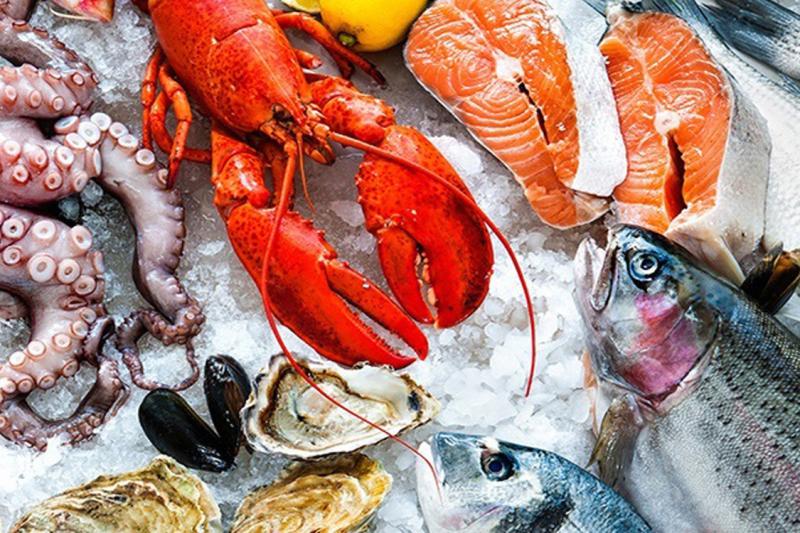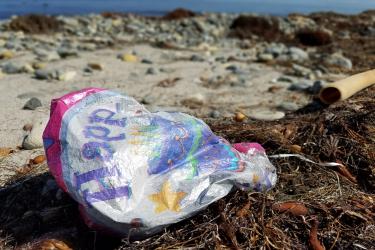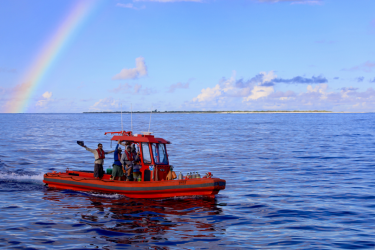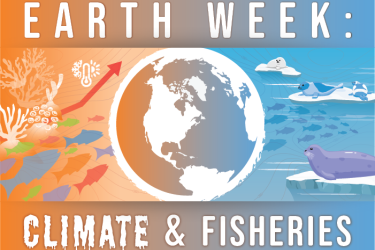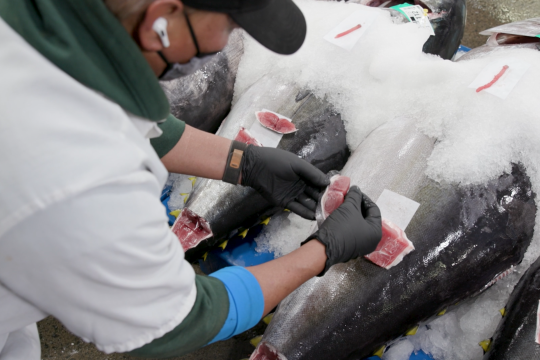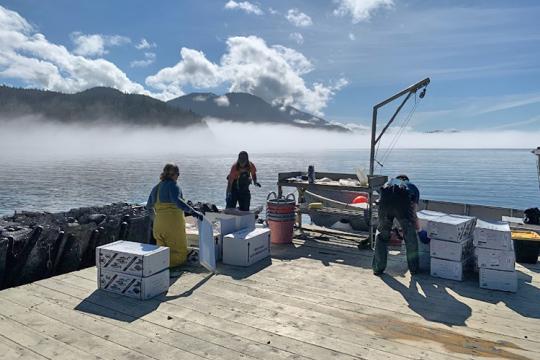At their July meeting, the Marine Fisheries Advisory Committee completed and delivered two major reports—one on seafood marketing and promotion and the other on the potential impacts of offshore wind development. Committee members also shared personal experiences from the current COVID-19 impacts on fishermen and the seafood industry and endorsed the new interagency Seafood Trade Task Force. And this was all in a day’s work for this federal advisory committee.
MAFAC is one of the oldest federal advisory committees in existence and it’s going strong. Despite its name, the focus of MAFAC is not limited to traditional fisheries. Established in 1972 to advise the Secretary of Commerce, MAFAC works on all living marine resource matters under the jurisdiction of the Department. MAFAC members represent a diverse set of perspectives—including commercial and recreational fisheries, aquaculture, environmental, academic, state, tribal, seafood, and consumer interest groups—and the committee has the unique role of engaging each other and working together across these sectors to make consensus-based recommendations to NOAA Fisheries, NOAA, and the Department.
All NOAA Fisheries leaders attend MAFAC meetings, and I personally value my time listening to MAFAC member perspectives. We appreciate their frank criticism on areas for improvement as well as positive feedback on efforts done well.
Because I work on seafood issues directly, their meetings the past two years have been especially meaningful to me. MAFAC has been wrestling with how to “move the needle” on seafood consumption. Although health guidelines have long recommended that Americans eat seafood at least twice a week (equivalent to 26 pounds per year), the annual consumption average has hovered near 14 to 16 pounds for decades.
To address this gap, MAFAC finalized a much-anticipated report recommending the re-establishment of an industry-led National Seafood Council. Its goal is to promote and increase the value of our sustainably managed U.S. fisheries, including a focus on seafood’s nutritional value, to help improve seafood consumption by Americans.
Other recently completed efforts include:
-
A comprehensive report that recommends how to improve planning and coordination of offshore wind development to reduce or mitigate impacts to fishing activities, protected species, agency research, and mission-related activities, and identifies funding needs.
-
A letter to the Secretary of Commerce endorsing the new Executive Order promoting American seafood competitiveness and economic growth and the vital need for the Seafood Trade Task Force that it establishes.
-
A letter to the Secretary of Commerce focused on short-term fisheries needs, particularly reducing or eliminating financial burdens on fishing businesses, as the COVID-19 pandemic and its impacts continue.
These MAFAC recommendations are particularly timely given the broad impact of COVID-19 on the seafood industry, and the widespread support that MAFAC heard from industry and other stakeholders that precompetitive collaboration on seafood marketing and promotion is essential for the industry to recover and become more resilient over time. Our agency will be reviewing and considering this input over the coming months. In the meantime, MAFAC members and their task forces are continuing their work on other topics, such as developing guidance on the generation, delivery, and use of electronic data, and public attitudes about participating in angler electronic reporting programs, as well as finalizing a multi-year collaborative effort to develop goals and a comprehensive vision for the future of Columbia Basin salmon and steelhead.
The current members of MAFAC are leaders in their fields. They serve as volunteers in their role as committee members and I cannot stress enough the value we place on their commitment to this work. The role of advisory committees is to raise concerns, debate issues, share opinions, and distill all this into concrete advice in a public forum to present to the agencies they serve. MAFAC has consistently excelled in this role over the years. Their dedication to engagement is appreciated and shared by NOAA Fisheries leadership.
Dr. Paul Doremus
Deputy Assistant Administrator for Operations
